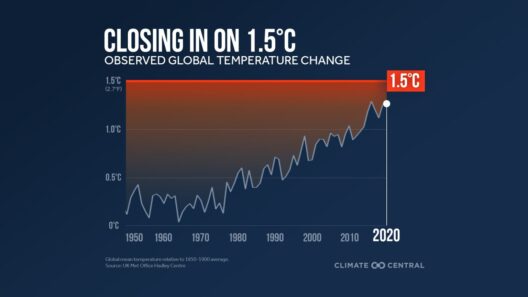Global warming has emerged as a critical issue that transcends borders, cultures, and socioeconomic strata. The science is unequivocal; climate change is no longer a distant threat but an immediate crisis. The consequences of inaction are dire, yet the power to effect change lies within each of us. In an era of uncertainty, individuals can wield remarkable influence through everyday choices. Here are some compelling strategies to empower your climate action, promising not only to mitigate global warming but also to inspire a broader cultural shift towards sustainability.
First, consider the impact of your dietary choices. The adage “you are what you eat” holds more truth in the context of climate change than in any other sphere. The livestock sector is one of the leading contributors to greenhouse gas emissions, with beef and dairy particularly culpable. By adopting a plant-based diet or incorporating more plant-based meals into your routine, you can significantly reduce your carbon footprint. Studies suggest that a shift towards less meat consumption can result in a 70% reduction in food-related emissions by 2030. Even small changes—like participating in “Meatless Mondays”—can create a ripple effect that encourages friends, family, and community members to reconsider their food choices.
Next, scrutinize your energy consumption. The sources of energy that power our homes are often drawn from fossil fuels. Transitioning to renewable energy sources—when feasible—can dramatically reduce your personal contribution to greenhouse gases. Consider installing solar panels, signing up for community solar programs, or working with your utility to purchase green energy. Not only does this enhance your home’s sustainability, but it also fosters economic resilience by supporting local renewable industries.
Transportation is another significant contributor to emissions, and rethinking your daily commute offers fertile ground for climate action. Carpooling, utilizing public transportation, cycling, or walking not only curtails greenhouse gas emissions but also promotes healthier lifestyles. As urban centers acknowledge the urgency of climate change, many are enhancing public transport options and implementing cycling infrastructure. Taking advantage of these emerging systems not only reduces carbon footprints but catalyzes systemic change in urban planning policies.
Moreover, consider your consumption patterns. The modern economy thrives on “fast” and “disposable,” be it in fashion, technology, or consumer goods. By embracing a mindset of minimalism and opting for sustainable products, you can challenge this unsustainable paradigm. Seek out products designed for longevity and reparability, and support companies prioritizing ethical production practices. Additionally, thrift shopping not only breathes new life into items but also fosters a culture that defies consumerism.
Home waste management is another arena ripe for action. The invisible carbon footprint of waste management is staggering, but it often goes unnoticed. Implementing a robust recycling and composting system at home can mitigate this impact. By diverting organic waste from landfills and opting for recyclable materials, you can help lower methane emissions, a powerful greenhouse gas. Take the initiative to educate your neighbors about proper waste separation techniques—community-level shifts often create the most monumental change.
Furthermore, stay informed about the policies affecting climate change at local, national, and global levels. Advocacy and civic engagement are powerful tools in pushing for systemic change. Signing petitions, contacting elected representatives, and participating in local government meetings can amplify your voice. Consider volunteering with environmental organizations; aligning with groups dedicated to climate action provides not only camaraderie but also organized might against systemic obstacles. Collaborating with others can help push legislation aimed at reducing emissions, conserving energy, and protecting natural habitats.
Another profound way to engage with climate action is through education and awareness. Share knowledge about climate change with your friends, family, and social networks. Neuroscience illustrates that information dissemination shifts perspectives and can catalyze collective action. Hosting discussions or educational workshops can plant the seeds for activism within your community. You might spark a passion for sustainability in someone who had previously been indifferent to the cause.
Don’t underestimate the power of trees; they are our planet’s lungs. On an individual level, planting trees and fostering green spaces in your community can lead to significant reductions in atmospheric carbon. Trees absorb CO2 while providing shade, which can mitigate urban heat islands and improve local microclimates. Organizing or participating in local tree-planting events melds environmental stewardship with community engagement and personal satisfaction. A tree planted today could make a difference for generations to come.
Finally, recognize that individual actions are most potent when woven into the fabric of collective efforts. Climate change is a complex challenge, but it is not insurmountable. By committing to sustainable practices, advocating for systemic change, and making conscious choices, you can harness your climate power. This is not just a personal journey; it is part of a larger movement toward a healthier planet and a more sustainable future.
As you embark on your path to becoming a climate activist, it is crucial to remain optimistic. The power of one can inspire many, and as curiosity piques through collective efforts, a wave of change can emerge. The choices you make today could influence the trajectory of our planet for future generations. By acting decisively and encouraging others to do the same, you become a vital part of the solution to global warming. Engage, educate, and empower yourself—your climate power awaits your command.







